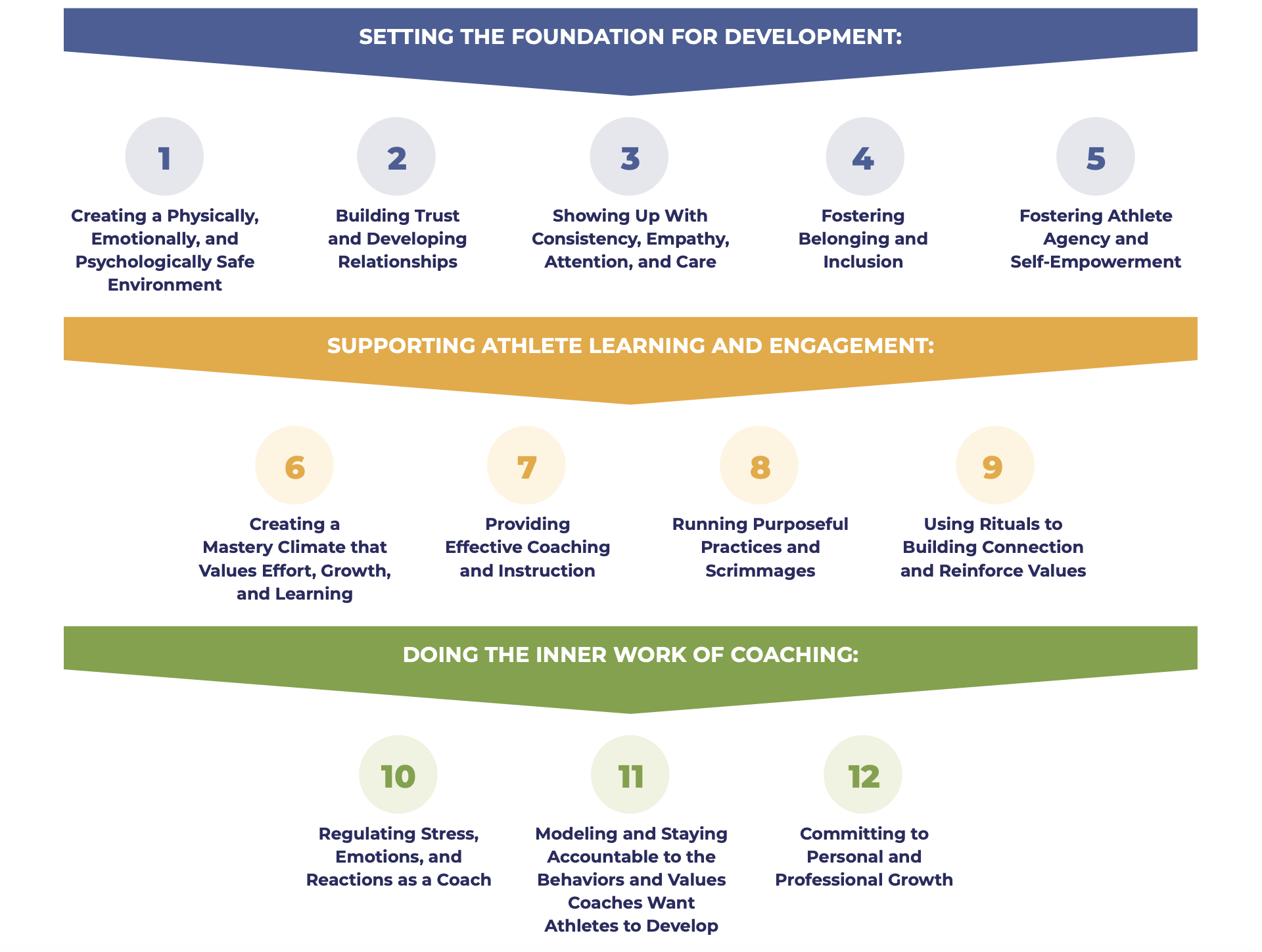A Practice Guide for Youth Coaches
12 Coaching Strategies to Support Positive Youth Development
Coaches play a crucial role in making young people’s experiences positive and a catalyst for the development of different sport and life skills. But here’s the thing: Coaches need support, too.
The MCC Practice Guide for Youth Coaches offers practical, evidence-based strategies that every coach can use right away to strengthen the experience for kids. This guide identifies 12 core practices and provides coaches with practical and actionable strategies that they can use, no matter the sport, age of their athletes, or experience level.

Practical Coaching Strategies
This guide was created by the American Institutes for Research® (AIR®) in collaboration with the Million Coaches Challenge partner organizations, based on findings from an ongoing implementation study of the MCC.
Our goal is to take what we are learning from the MCC and share our collective vision for integrating practices that foster positive youth development into coaching.
This guide may be a starting point or a stop along a coach’s coaching journey.
While it’s primarily geared toward coaches, it’s also a valuable resource for sport leaders, athletes, and families. Each group plays a role in creating safe, inclusive, and growth-oriented environments.
Use this guide as a roadmap. Start where coaches are, choose one or two areas to focus on, and build over time. The goal is progress, not perfection.
Each section lays out one of the core coaching practice areas that all good coaches should know about and be able to implement. Check it out today!
Explore the 12 Coaching Practices
Great coaching doesn’t happen by accident, it’s built on proven practices. Review them, try them, and download the resources to make them part of your playbook.